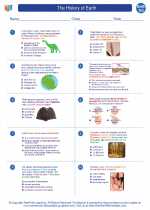Endoparasites
An endoparasite is a parasite that lives inside the body of its host. These parasites can cause a range of health issues in the host organism. Endoparasites can be found in various organisms including humans, animals, and plants.
Types of Endoparasites
Endoparasites can be further classified into different types based on their location within the host's body:
- Intestinal Parasites: These parasites reside in the intestines of the host and can cause gastrointestinal problems.
- Protozoa: Single-celled organisms that can cause diseases such as malaria and toxoplasmosis.
- Helminths: These are parasitic worms that can infect the digestive system, blood, or other organs of the host.
- Flukes: Flatworms that can reside in the liver, lungs, or intestines of the host.
- Tapeworms: Ribbon-like worms that live in the intestines of the host.
- Roundworms: These are cylindrical worms that can infect the intestines, lungs, or other tissues of the host.
Life Cycle of Endoparasites
Endoparasites have complex life cycles that often involve different stages and sometimes multiple hosts. Understanding the life cycle of different endoparasites is important for their control and prevention.
Health Effects
Endoparasites can cause a range of health issues in the host, including digestive problems, anemia, organ damage, and in severe cases, even death. It's important to be aware of the symptoms of endoparasitic infections and seek medical treatment if necessary.
Prevention and Control
Preventing endoparasitic infections involves practicing good hygiene, proper sanitation, and avoiding the consumption of contaminated food and water. In addition, regular deworming and medication can help control endoparasite infections in both humans and animals.
Study Guide
When studying endoparasites, it's important to focus on the following key points:
- Types of endoparasites and their respective hosts.
- Life cycle of common endoparasites and their modes of transmission.
- Health effects of endoparasitic infections on the host organism.
- Preventive measures and control strategies for endoparasite infections.
Understanding endoparasites is crucial for maintaining the health and well-being of both humans and animals. It's essential to be aware of the potential risks and take necessary precautions to prevent and control these parasitic infections.
.◂Earth Science Worksheets and Study Guides High School. The History of Earth

 Worksheet/Answer key
Worksheet/Answer key
 Worksheet/Answer key
Worksheet/Answer key
